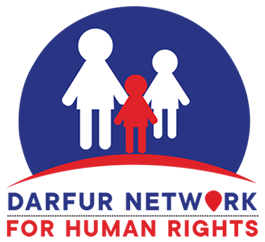(Kampala) – Iridimi Refugee Camp, established in 2003, is located in East Chad near the Sudanese border. Initially set up to accommodate refugees from the Darfur conflict of 2003, the camp received a new influx of refugees in June 2023 due to the civil war between the Rapid Support Forces (RSF) and Sudanese Armed Forces (SAF) that began in April 2023. The Darfur Network for Human Rights (DNHR) is monitoring and documenting human rights violations and advocating for the rights of these vulnerable populations. DNHR received a report detailing the current situation in the camp.
Food Security: The collaboration between UNHCR and WFP is crucial for food supply. However, there have been significant delays and inconsistencies. Refugees went without food for three months until September 2023. Subsequent distributions have been irregular, with cash substitutes of 2800 CFA (4.62 USD) per individual in some months. Protests in May 2024 led to a temporary one-month cash supply. Refugees have resorted to making bricks for income.
Water Supply: CECOD-FEE Organization provides water through tanks, with four water points established in zones 11, 12, 13, and 14. However, zone 14 remains excluded from the supply chain. The water provided is insufficient, forcing refugees to walk 2 kilometers to fetch water from a well.
Education: GRS Organization has set up two schools with outdoor classes for primary students. Limited classroom space necessitates evening sessions for senior classes. A meeting to address the needs of university-level students is pending.

Health: IRC offers health services but faces severe limitations. The camp clinic lacks medication for chronic diseases and has no laboratory. The absence of an ambulance means emergency cases are transported by carts to a hospital 18 kilometers away. Eight deaths, primarily among children and women, have been reported due to famine and inadequate medical care.
Security Situation: While the camp is generally safe, tensions exist between older and newer refugees over scarce resources such as food, water, medicine, and education.
Camp Capacity: The camp hosts approximately 14,000 refugees. Numbers are decreasing as refugees relocate to other towns due to poor living conditions.
Housing: Materials for shelter construction, such as wood, blankets, linen, and mats, are provided. However, many newly arrived refugees have yet to be accommodated in designated zones.
DNHR’s appeal:

DNHR urgently appeals for immediate and sustained international support to address the critical needs of Sudanese refugees in Iridimi Refugee Camp, Chad. We call for consistent food supplies to prevent further hunger and malnutrition, improved water access to ensure all zones receive adequate daily provisions, and enhanced educational facilities to accommodate both primary and university-level students. Additionally, it is vital to bolster health services with essential medications, laboratory facilities, and emergency medical transportation. Security measures must be strengthened to mitigate conflicts over scarce resources. Immediate action is needed to provide proper shelter materials for all refugees. The international community’s prompt and decisive support is crucial in alleviating the dire conditions faced by these vulnerable populations and safeguarding their fundamental human rights.

